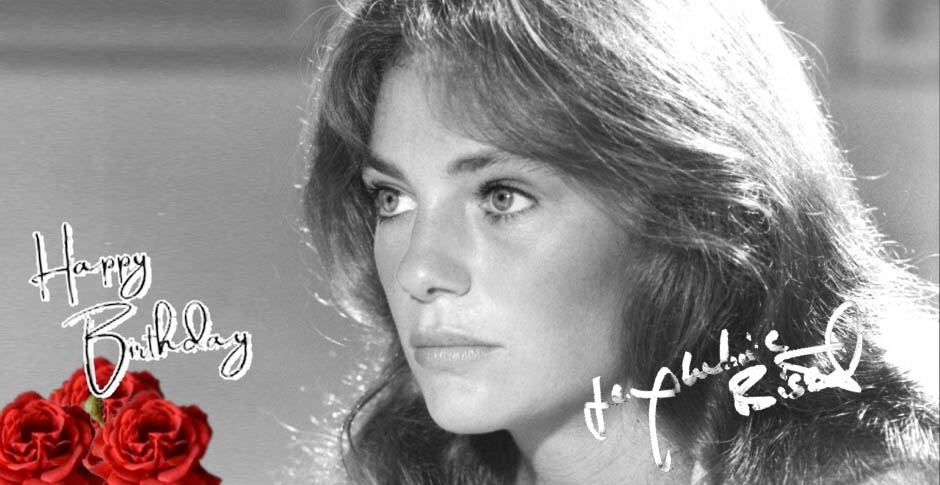Jacqueline Bisset: I made many films in America but then I wanted to make more intimite films and they were made in Europe
Written by Eva Csölleová, Vítek FormánekWho wouldn´t know Christina /Ariane character from iconic movie Le Magnifique alongside Jean Paul Belmondo? It was portrayed by Jacqueline Bisset, English actress, who is rare mix of beauty, charisma, intelligence, humility and humanity. She played with “who is who“ in film world be it Frank Sinatra, Steve McQueen, William Holden, Paul Newman or Albert Finney.This beautiful woman will celebrate 80th birthday, which is incredible, and we would like to wish her by this profile a VERY HAPPY BIRTHDAY.
Winifred Jacqueline Fraser Bisset was born 13 September 1944.
Bisset's mother cycled from Paris and boarded a British troopship to escape the Germans during the 1940 Battle of France. Jacqueline was taught by her mother to speak French fluently, and she was educated at the Lycée Francais de Londres in London. She took ballet lessons as a child and began taking acting lessons while working as a fashion model to pay for them. When Bisset was a teenager, her mother was diagnosed with multiple sclerosis. Bisset first appeared uncredited as a prospective model in The Knack ...and How to Get It (1965), directed by Richard Lester. She made her official debut the following year in Roman Polanski´s Cul-de-sac (1966). In 1967, Bisset had her first noticeable part in the Albert Finney/Audrey Hepburn vehicle Two for the Road. She gained mainstream recognition in 1968, when she replaced Mia Farrow in The Detectice opposite Frank Sinatra. She capped her year as Steve McQueen´s girlfriend in the police drama Bullit. Bisset went to France to appear in Francois Truffaut´s Day for Night (1973), earning the respect of European critics and moviegoers as a serious actress. She stayed in France to make Le Magnifique (1973) with Jean-Paul Belmondo. By 1978, Bisset was a household name.
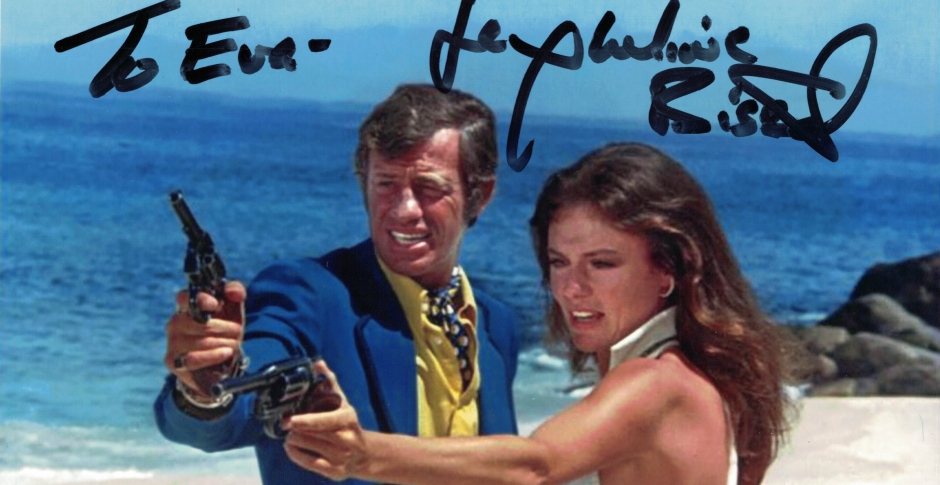
What are you memories at a childhood in post-war England?
We lived in a very small cottage, thatched cottage, and because of the low roof, the wooden roof, the acoustics were amazing, so almost anything she played, music-wise, on the record player sounded fantastic. she used to play classical music, she taught me how to listen to music, and ballet was a fantastic dream.
I used to dream about it, and I would choreograph is very well while being in bed and closing my eyes.We had a lot of books at home. No entertainment, no television, never had television until I was 18, it was in 1962, my father agreed to have television.
Did you go to the cinema as a child?
No, I didn’t go to the cinema. I went to see Snow White, that was about it till I was about 15. On Thursdays, my father and mother would go to the cinema and see foreign films. My mother would dress in a nice outfit, put on high heels, and they would go to the cinema. And I think I was probably about 15 and a half or something, and they said, “Would you like to come?”, and I started to see few foreign films. And then at 16 and a half, 17, I went to the French Lycée for two years, and saw all those incredible films. We used to skip school on Tuesdays, and go to a cinema that had French films, and Italian films and I also watched those New Wave films. My mother was diagnosed with multiple sclerosis and I took over the running of the house. Parents separated, I cared for my mum and father later died. I had to grow up fairly quickly.
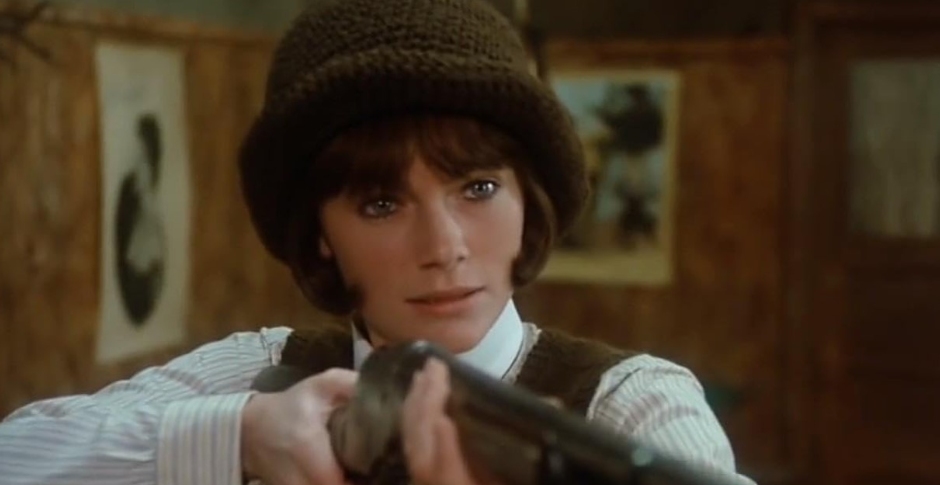
At the age of 22 you played in Roman Polanski´s movie Cul-de-sac. What was it like to be finally on the set, filming?
I was very shy at that time, but I admired him, and I felt he was on a different level.There’s a degree of authority about him and also a degree of poetry about him. He’s not easy to talk to, I never found him easy to talk to but I like him a lot, and I know him fairly well, I knew his wife, and I’ve been close to some of the tragic situations in his life. I was actually at the same house with his wife Sharon and the same people who were murdered there a week later. With various things I’ve been close. And I’m fond of him; he’s had a lot of suffering in his life. He’s now demonized and nobody forgives him, but I have very mixed feelings about the whole thing.
Than came a movie Two for the Road where you played alongside legendary Audrey Hepburn, didn´t you?
Yes, the shoot went very easily, I felt free and I was delighted to be invited. At lunchtime they get out the bottles of wine and the Pernod and the fantastic lunch. I didn’t know the Pernod, the crew would have it and I would join them, and one day somebody said to me, that I am better actress after the lunch than beforehand. And I realized I needed to relax, because I was very shy, and alcohol helped me to do so.But I said to myself I have to stop doing it and find other way of getting there. As I look back, I see how many people have fallen by the wayside for that very reason, and you can’t take that fun thing to do as something you do, to be more relaxed. You find another way of getting there. And my nature is actually to find the hard way.
How did you actually get to Hollywood?
With the help of luck. Darryl F Zanick, the head of 20th Century Fox spotted me in afforementioned movie Two for the Road. I was to go for the tests to the States. I went there completely alone. My mother put me on the flight and off I went. I had no idea what to expect. They sent me first to South Africa to do a remake of Pick Up On South Street with Clair Trevor and James Brolin. Then came Sweet ride.
Then studio offered me a seven year contract which I turned down. I didn´t want to be owned by anybody, I wanted to be a free person not somebody´s property
Then you played alongside Frank Sinatra in movie The Detective. How did he – superstar- behave to you?
I replaced Mia Farrow who was then in the middle of a breakup with Sinatra. Because of that, I faced lots of media attention but Sinatra was protective of me. He often told people to leave me alone. I never really knew how I got from zero to Frank Sinatra. Then studio offered me a seven year contract but I turned it down since I didn´t want to be owned by anybody, I wanted to be free person not somebody´s property. So, they came up with new offer, contract for ten movies in seven years which meant, I could work with other people, too. It worked great and studio didn´t push me into anything, anymore.
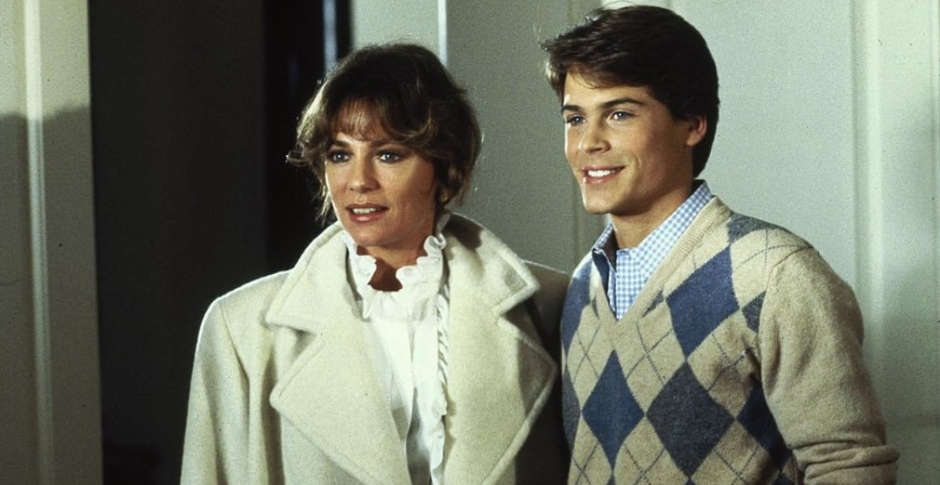
Then came the Bullit where you played alongside iconic Steve McQueen. What was he like, is it truth he was very egocentric?
I didn't actually think my role was necessary in that film, if Kathy hadn't been there, I don't think it would've made much difference. I would hope that if something like this was made today, there would just be more conversation about having more of that character. But the movie is about very closed-off cop. I saw how Steve was disinterested in fame. He didn't like being followed around, and he would come on his motorbike and by next minute he was gone.He wasn't narcissistic looking. He was low-key, that was the way I saw him. He was a good, regular, handsome man.
Have you ever though about becoming a director?
Yes, I have. But what I realize is at this point, one side of me is very good at giving instructions, but the other part of me detests it because it might bring out some very strange qualities in me. I could become very domineering. I actually believe you have to let things happen.I have very different experience with directors. Claude Chabrol made no rehearsal, he would say, You stand here, you go there, you lift this. It was fairly mechanical while John Huston basically let the actors do whatever they wanted. He listened and watched what they were doing. At times he wasn’t even there when we were figuring it out. He just went off, and then he came back. It was as if he didn’t even bother to shoot certain things. But I must say that all older directors they were tough and totalitaire. It was always very intimidating.
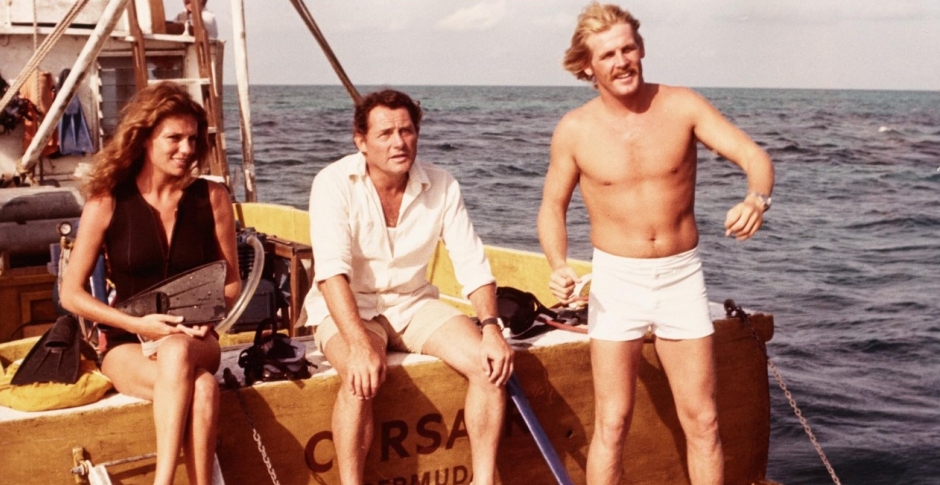
Some actresses complain about lack of work they are offered, how is it with you?
It depends on what you want to do. Throughout my career, I’ve always thought, “What is the best for me? Where can I do some decent work?”In order to get good parts, you need to get your visibility up to a certain amount. But then, when you get the visibility, you get a lot of the other side too. I am amazed that I am as healthy as I am at this point. I mean, I have been here a long time, so I am very happy that I am still a very healthy human being. I honestly reject a tremendous amount of what’s shown to me; I just don’t want to do it! I have no interest. I get asked to do things, and a lot of them I don’t want to do because I feel I have done them before. I am trying to find pieces to surprise the audience. I keep finding things, but they’re usually not in big projects.I used to work in the States a lot, and then I started to go and make more of the intimate little films I wanted to do, that I didn't find here.
Big part of film industry is very commercial and makes films only for money
You didn´t play very often in commercial films or blockbusters. Was it conscious decision?
There’s a whole area of moviemaking which is very commercial and it is done to make money. I don’t think that I have ever been in a film when I actually thought, These people are trying to make a moneymaker. I feel that most people want to work seriously and they want to make a good film. Then it is taken over by distributors, and things become commercial projects.
Do you like going to festivals and promoting films?
I love seeing movies, but when I have a film at a festival, all I do, is press conferencies, and answering questions. Sometimes, I get invited, they give me awards but they (awards) don’t mean much because they basically want me to come for free. That’s all it really means. It’s nice, but what I really like is to meet other filmmakers.
Oscar award ceremony is now more about gender balance. What do you think of the Oscars perhaps putting male and female actors into one category?
I can’t take all this talk about sexual roles. Who’s a man and who’s a woman. I just don’t understand it. I haven’t thought about it but I think it’s probably not a good idea. Acting is a job about doing the different emotions that you can do. You try to find the right person for the job. I see a degree of it but I think parts should be open to many different groups of people. And I’m all for casting being fair. But to say, “You can’t make this movie with someone, you have to make it with someone else” because of a rule. I think that’s turning a lot of people off.
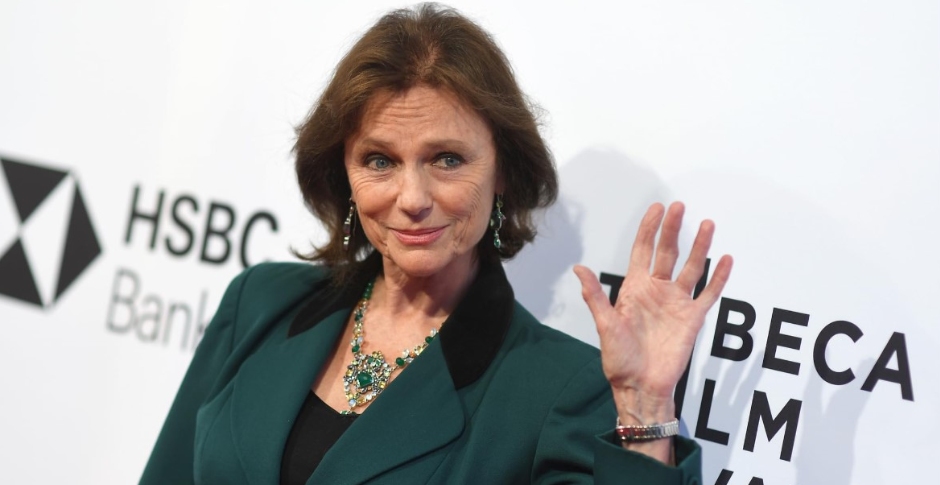
You are in business for almost six decades. Do you have any advice for young, would be actors ?
I always tell young actors Learn a language. Go to another place, and learn another language so you can work in another country. While you’re waiting around on a film set, use your time. Read the papers. As an actor, a real communicator, you are representing the world, so you should know what’s happening.
Photos, thanx: IMDb


